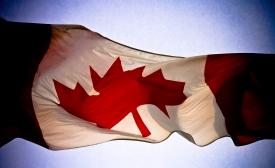science diplomacy
Years of resource reductions and the centralized political control and manipulation of all scientific and public communications have deeply corroded Canadian democracy, governance and public administration. The capacity to practice science diplomacy- a critical tool in responding to the vexing range of challenges generated by the globalization age - has perhaps been foremost among the casualties.

Science and diplomacy in Canada's newly elected government.
The delegates recognized that there would be many hurdles to traverse for the military and scientists to fully harness the fruits of Arctic diplomacy. In particular, the distrust of China as a non-Arctic nation taking interest in the region needed to be moderated with a recognition of other global powers having presence in areas very distant from their own regional vicinity.
The arena for this convergence of two words- science and diplomacy- was displayed at a Center for Strategic and International Studies (CSIS) Washington symposium, where marine science, and the emergence of China’s ‘blue economy’ framed a new narrative in understanding the environmental stakes in the region’s escalating conflict.
At U.S. Secretary of State John Kerry’s side when he negotiated a framework nuclear deal with Iranian diplomats this spring was physicist Ernest Moniz, U.S. secretary of energy. His presence spoke to the rise of “science diplomacy,” which can take the form of scientists helping diplomats, diplomats helping scientists, or scientific cooperation promoting diplomacy. The Iran case is the most vivid recent example of the first form.
The Comsats Institute of Information Technology, Islamabad and The World Academy of Sciences (TWAS) here on Tuesday signed an agreement to formalise cooperation between the two bodies in science diplomacy. The ceremony took place at Pakistan Academy of Sciences (Pas) where Comsats Executive Director Dr Imtinan Qureshi asserted the need for pragmatic and informed decision-making regarding issues of global climate change and international commitments and policies, leading to consensus on binding international agreements.
When one of Richard Stone's contacts in North Korea asked him four years ago if he knows any Western volcanologists who might like to study Mount Paektu, a volcano on North Korea’s border with China, he saw a rare chance. [...] Two related scientific papers are now in preparation, said Stone at a panel discussion he moderated about science diplomacy in North Korea at the 9th World Conference of Science Journalists in Seoul, South Korea, this week (10 June).







